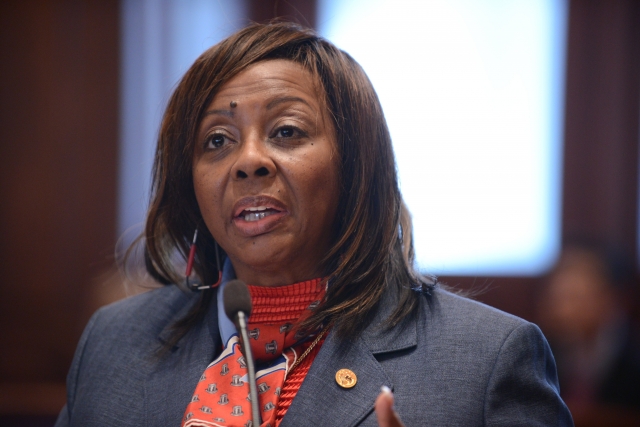- Details
- Category: Press Releases

"TASC stood by me during my efforts to improve Illinois' criminal justice system and addiction treatment policies," said Hunter, a career advocate for civil justice.
"I am honored to be recognized alongside Steve Pemberton for the work we've done in our communities. Leadership involves both finding solutions through legislation and making businesses stewards of their communities."
- Details
- Category: Press Releases
 This week, the Illinois Environmental Council gave State Senator Mattie Hunter (D-Chicago) and 34 other legislators a perfect score on their 2014 Environmental Scorecard.
This week, the Illinois Environmental Council gave State Senator Mattie Hunter (D-Chicago) and 34 other legislators a perfect score on their 2014 Environmental Scorecard.
“I am so honored by earning a 100 percent Environmental Scorecard award,” said Hunter, Majority Caucus Whip. “Thank you for recognizing the work of my colleagues and I.”
Elected officials had to vote in favor of 11 major environmentally friendly pieces of legislation in order to receive a perfect score.
- Details
- Category: Press Releases

Under House Bill 5686, if parents name a godparent as a child’s short-term caretaker, then a third party, such as a grandparent, aunt or uncle, wanting guardianship must prove the godparent is unfit.
- Details
- Category: Press Releases
Doctors seeking to improve patient care can soon use Health Information Exchanges (HIEs) to share vital patient health information, under legislation signed into law today.
The new law, which passed the General Assembly with overwhelming bipartisan support, authorizes doctors to use HIEs to improve their ability to treat patients. HIEs allow health care providers to share a patient’s personal health information electronically.
More Articles …
Page 97 of 126


